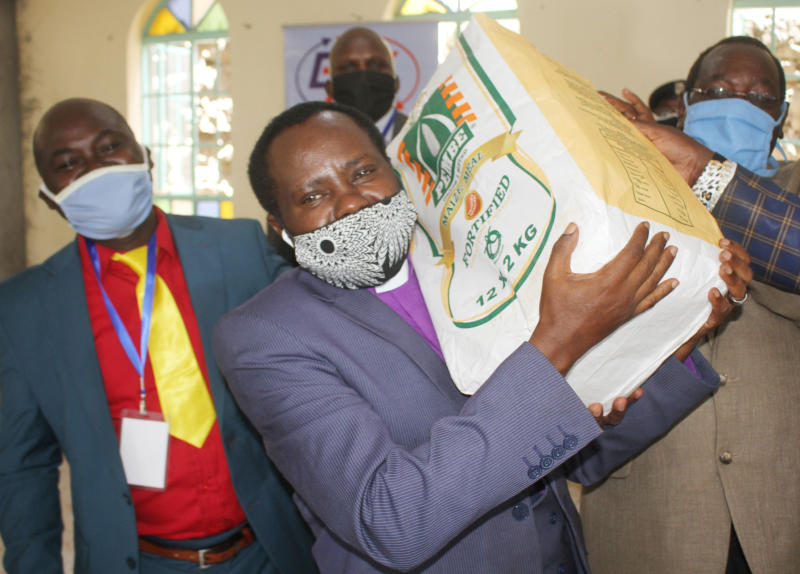×
The Standard e-Paper
Smart Minds Choose Us

The smile on his face told it all. Upon receiving a bale of maize flour and Sh1,000, Pastor Simon Imani of Pentecost Church in Kwa Rhonda estate, Nakuru, said a silent prayer of gratitude.
The past couple of weeks have been difficult for Pastor Imani and the help from Bishop Mike Brawan of Metro church to some 12 pastors was welcome.